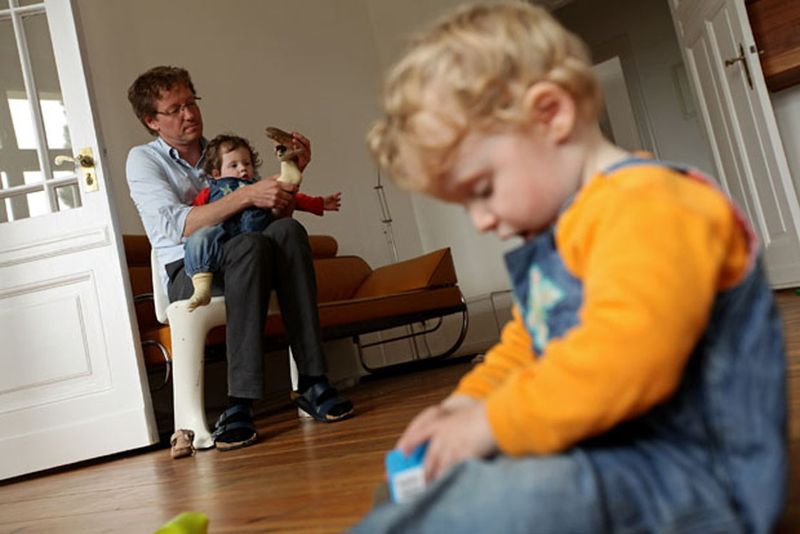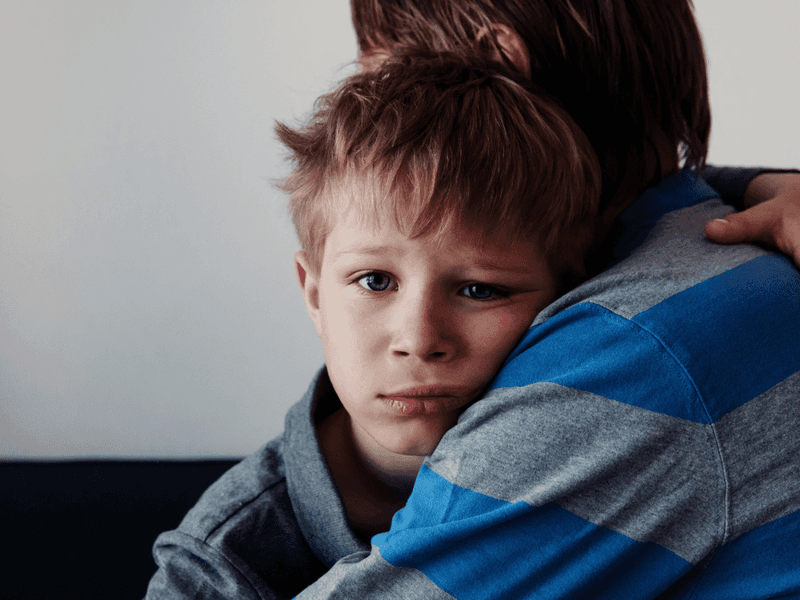25 Bad Habits Of Parents Who Don’t Stay Close To Their Kids

Ever wonder why some parents struggle to connect with their children? Building strong parent-child bonds takes effort and intentional choices. When these connections break down, certain behaviors are often to blame. Let’s explore the habits that create distance between parents and their kids—and how to avoid them.
1. Constant Phone Checking

Parents who constantly check their phones send a clear message to their kids: “Something else is more important than you.” These digital distractions create invisible walls between family members.
Children learn to compete with devices for attention, often giving up eventually.
2. Missing Important Events

Repeatedly skipping school plays, sports games, or recitals leaves lasting emotional scars. Your absence speaks volumes about priorities.
Kids remember who showed up for them and who didn’t. Those empty seats in the audience represent missed opportunities for connection that can’t be replaced.
3. Criticizing More Than Praising

When criticism flows freely but praise comes rarely, kids learn to expect disappointment rather than celebration. They stop sharing accomplishments to avoid potential judgment.
Gradually, they build emotional walls for protection, keeping parents at arm’s length to shield their self-esteem.
4. Dismissing Emotions

“Stop crying” or “You’re overreacting” teaches kids their feelings don’t matter. This emotional invalidation creates distance as children learn to process feelings alone.
Eventually, they stop sharing emotional experiences altogether, keeping significant parts of themselves hidden from parents who’ve shown they won’t understand.
5. Comparing Siblings

“Why can’t you be more like your brother?” Plants seeds of resentment not just toward parents but between siblings too. Comparisons create competition where support should exist.
Kids need to feel valued for their unique qualities, not measured against someone else’s yardstick.
6. Never Apologizing

Parents who can’t say “I’m sorry” teach kids that accountability doesn’t apply to authority figures. This double standard breeds resentment and damages trust.
Children learn relationships aren’t equal and that vulnerability is weakness, making authentic connection nearly impossible.
7. Working Constantly

Career-consumed parents often justify absence as providing for the family. Yet financial provision without emotional presence creates material wealth alongside relationship poverty.
Kids don’t remember the overtime hours, just the empty chairs at dinner and bedtime stories never read.
8. Avoiding Physical Affection

Hugs, high-fives, and comforting touches are building blocks of emotional security. When physical affection disappears, especially as children grow older, an important connection channel closes.
Touch communicates love in ways words sometimes can’t, particularly during difficult conversations.
9. Making Promises You Break

Broken promises teach children they can’t count on your word. Each unfulfilled commitment chips away at trust, the foundation of close relationships.
Kids learn quickly whether promises from parents hold weight or are just empty words meant to pacify temporarily.
10. Avoiding Difficult Conversations

Life includes tough topics: death, sex, failure, and disappointment. Parents who dodge these discussions force kids to find answers elsewhere.
When children learn parents won’t discuss uncomfortable subjects, they stop bringing important questions home and seek guidance from potentially unreliable sources.
11. Delegating All Parenting

Outsourcing childcare, homework help, and emotional support to others sends a clear message about priorities. While help is sometimes necessary, complete delegation creates parental substitutes.
Children bond with whoever consistently meets their needs, whether that’s you or someone else.
12. Controlling Every Decision

Micromanaging children’s choices stifles independence and creates rebellion or unhealthy dependence. Kids need appropriate autonomy to develop decision-making skills.
Controlling parents often find their children either push them away completely or become incapable of functioning without constant direction.
13. Living Through Your Kids

Forcing children to fulfill your abandoned dreams creates pressure that kills authentic connection. Ballet classes you wanted or sports you excelled at become battlegrounds rather than bonding opportunities.
Kids sense when they’re living someone else’s story instead of writing their own.
14. Belittling Their Interests

Eye-rolling at video games, dismissing certain music, or mocking hobbies communicates judgment rather than curiosity. Shared interests build bridges; mockery builds walls.
When parents make fun of what matters to kids, they miss countless opportunities to enter their children’s worlds.
15. Expecting Perfection

Unrealistic standards create anxiety, not excellence. Children crushed under perfectionism learn to hide mistakes rather than learn from them.
They present polished versions of themselves to parents, keeping struggles, fears, and failures—the very things that need parental guidance—completely hidden.
16. Weaponizing Guilt

“After all I’ve done for you” creates obligation, not connection. Manipulating children through guilt teaches them love is conditional and comes with strings attached.
Healthy relationships thrive on mutual respect, not emotional debt collection.
17. Refusing to Evolve

Parenting a toddler differs greatly from parenting a teenager. Parents who use outdated approaches for growing children create frustration on both sides.
Children’s needs change dramatically as they develop, requiring parents to adapt their communication and connection styles accordingly.
18. Holding Grudges

Parents who catalog past mistakes and resurrect them during arguments teach kids that forgiveness isn’t real. This scorekeeping approach damages trust and openness.
Children learn to hide information that might become ammunition later, creating secretive behavior patterns.
19. Inconsistent Rules

Constantly changing expectations create confusion, not compliance. Children need predictable boundaries to feel secure and understand their world.
When rules shift based on parental mood, kids focus on reading emotions rather than learning values, creating anxiety instead of connection.
20. Public Humiliation

Disciplining, correcting, or mocking children in front of others destroys trust and creates lasting embarrassment. Public shame doesn’t teach—it traumatizes.
Children learn to avoid parents in social settings to prevent potential humiliation, widening the distance between them.
21. Pretending to Listen

Half-hearted “uh-huhs” while scrolling or watching TV teaches kids their stories aren’t worth full attention. Active listening requires eye contact and engagement.
When parents consistently fake attention, children eventually stop trying to share important parts of their lives.
22. Sharing Too Much Online

Posting embarrassing stories or photos violates children’s privacy and trust. Social media oversharing prioritizes likes over your child’s dignity.
As kids discover their personal moments have become public entertainment, they become increasingly guarded around the parent they can’t trust.
23. Never Playing Together

Play creates unique bonding opportunities at every age. Parents who never get down on the floor with young kids or join older ones in activities miss natural connection moments.
Shared fun creates positive associations and memories that strengthen relationships through difficult times.
24. Emotional Unavailability

Being physically present but emotionally absent creates confusing disconnection. Children sense when parents have built emotional walls.
Parents struggling with their own unresolved issues often unintentionally pass down patterns of emotional distance, creating generations of surface-level relationships.
25. Refusing Help When Needed

Parenting doesn’t come with a manual, and pretending to have all answers prevents growth. Refusing therapy, parenting classes, or guidance when struggling hurts everyone.
Children benefit when parents model healthy help-seeking behavior rather than suffering in isolated pride.
